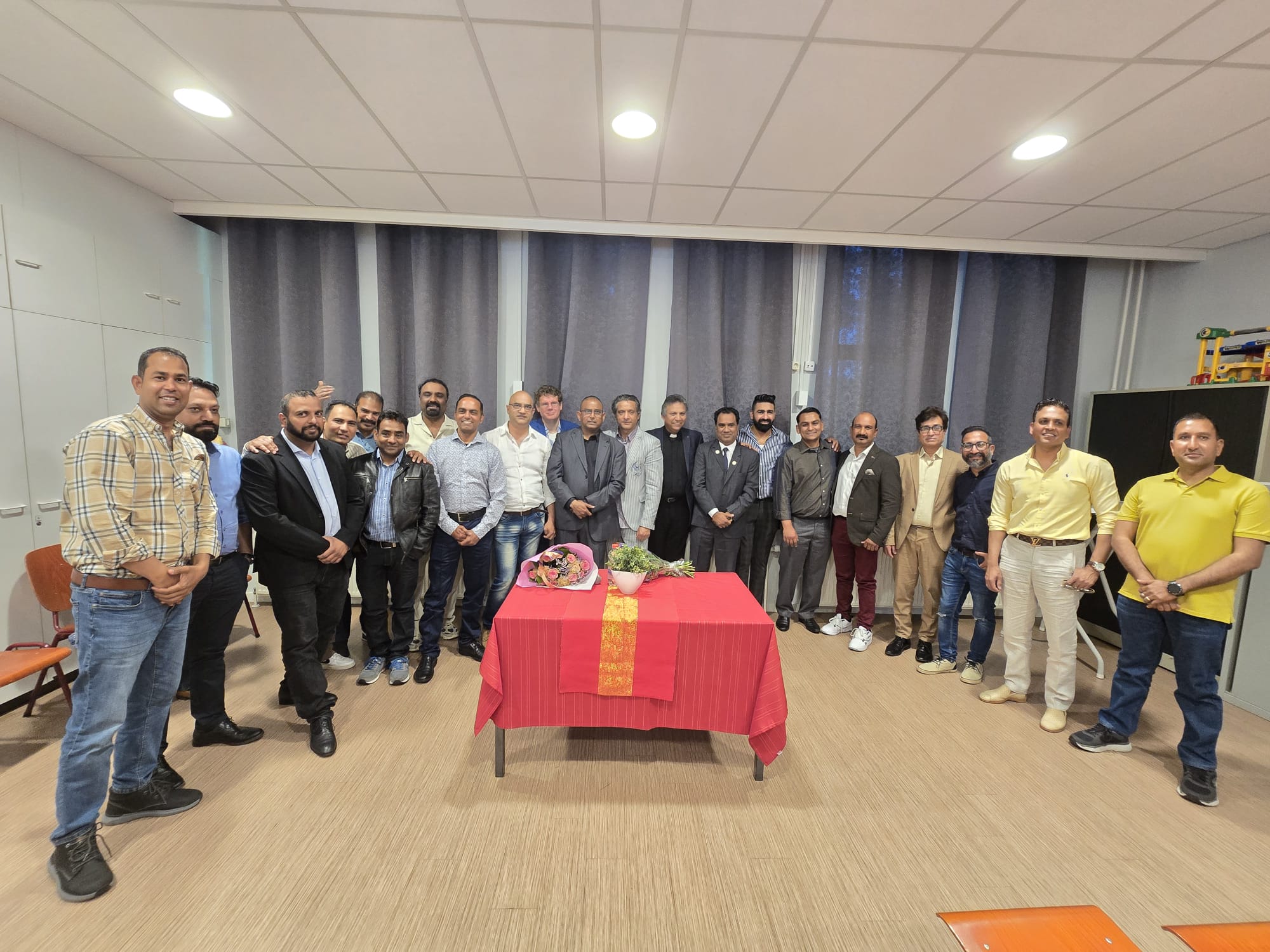News Desk
Harderwijk, Netherlands 31 May 2025:
Members of the Pakistani Dutch Christian Community (PDCC) gathered in Harderwijk on Saturday to call for justice and fair treatment from the Netherlands’ Immigration and Naturalisation Service (IND). The meeting, held at Stationslaan 136, brought together asylum seekers, legal experts, and community leaders to address growing concerns over the treatment of Pakistani Christian asylum claims.
Organized by a coalition of ten prominent community members, the event aimed to mobilize support for reclassifying Pakistani Christians as a high-risk group—given their documented persecution in Pakistan, particularly under the country’s blasphemy laws. The organizers included Watson Gill, Aneel Naeem, Anson Sikander, Azeem Masih, Emmanuel Gulzar, Pastor Imran Gill, Moon Samuel, Shahzad Ghouri, Shahroze Saleem, and Tanveer Qurban.
The meeting opened with a prayer led by Pastor Eric, followed by an agenda presentation from Shahzad Ghouri, who outlined a two-phase action plan. The first phase involves launching an online petition seeking at least 5,000 signatures to pressure the IND to reconsider its classification and processing of Pakistani Christian asylum cases. If the petition fails to generate a response, a peaceful protest will be organized as part of the second phase.

Legal expert Thomas Thissen, who has experience with asylum procedures, was a featured speaker. He criticized what he described as the IND’s persistent dismissal of Pakistani Christian cases despite favorable court rulings. Thissen called the current situation “criminal negligence” and offered to provide free legal support to the community, even on weekends.
Also in attendance was Samuel Pyara, a long-standing advocate for Christians in Pakistan, who was recognized for his efforts in supporting persecuted communities. Speakers throughout the meeting emphasized the need for unity, legal support, and international advocacy.
The session included a Q&A, during which asylum seekers voiced concerns about delays in the application process and the risks they face due to Pakistan’s blasphemy laws—particularly Section 295C of the Penal Code. Respondents stressed the complexity of the asylum process and the need for coordinated advocacy efforts.
The meeting concluded with a unified call to action, encouraging all attendees to participate actively in the upcoming petition and to prepare for public demonstrations if necessary.
The PDCC’s campaign reflects a growing demand among minority asylum seekers in Europe for equitable treatment and recognition of religious persecution in their home countries.


